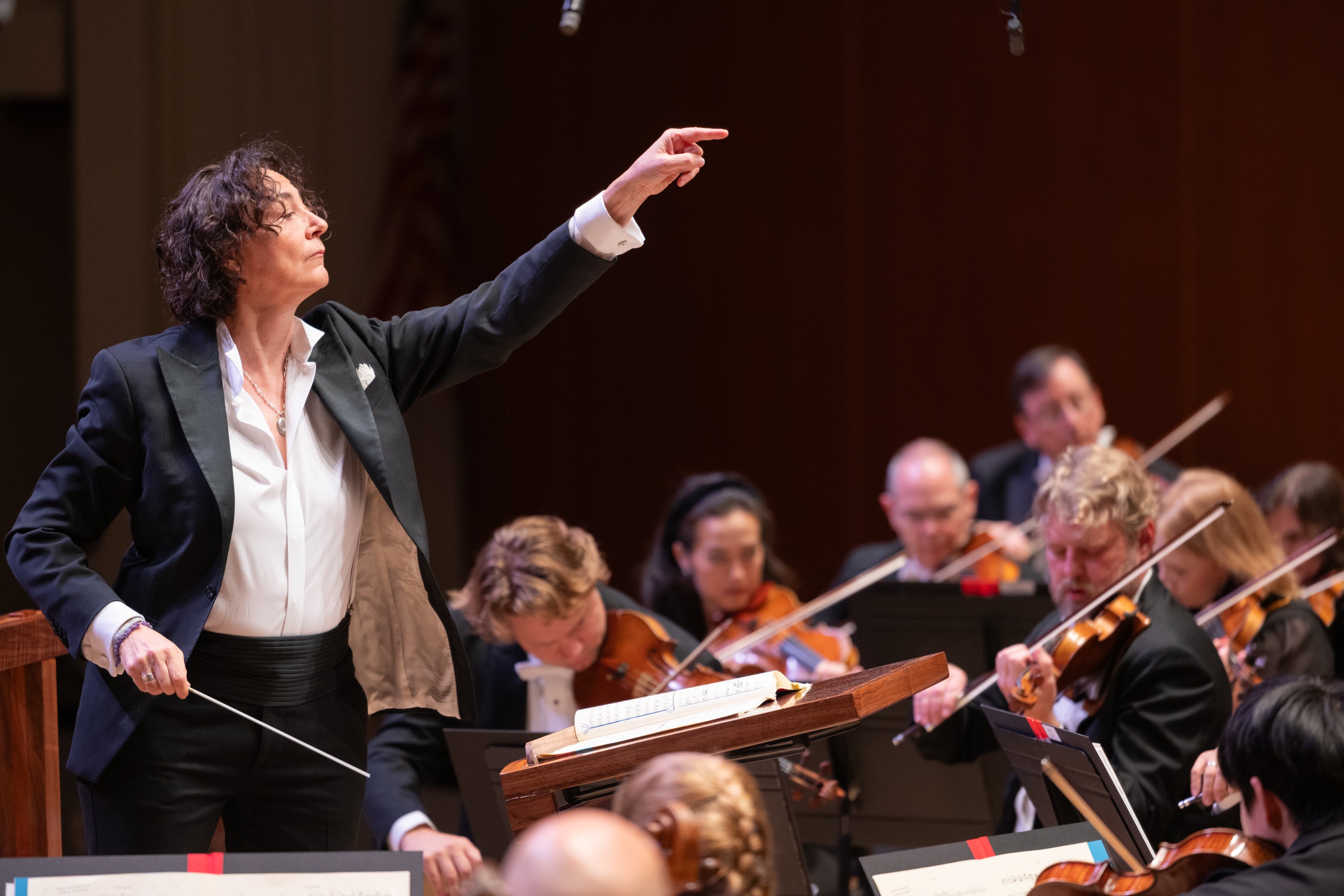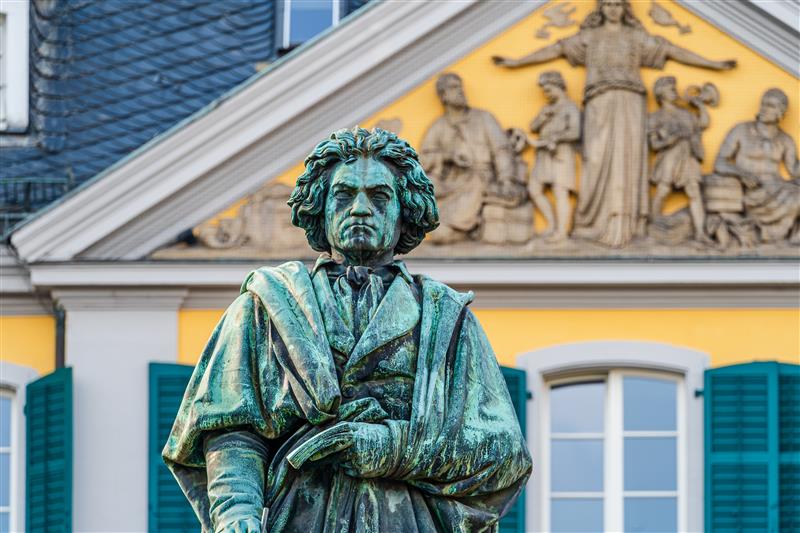The Beethoven Project Begins
December 19, 2024
By: Phil Kloer

Atlanta Symphony Orchestra music director Nathalie Stutzmann likens the orchestra’s next challenge to climbing a mountain, and not just any middling mountain.
“For any orchestra in the world, a Beethoven cycle is a Himalaya,” she says. “I think it's incredibly exciting for us, but also for the audience, because it's rare to be able to hear the full symphony cycle plus the Triple Concerto plus the Missa solemnis.”
That’s the marching order for the ASO’s Beethoven Project, which starts Jan. 23 and runs through the fall, culminating, of course, with the Ninth.
“Beethoven always asks from us almost more than we can give,” the conductor continues. “He’s so demanding. And there is also all the history of music around, before and after this cycle, which has existed with everything he has transformed.”
Originally, the ASO’s Beethoven celebration was to have been in 2020, the 250th anniversary of his birth, and included a performance of the Missa at Carnegie Hall. But the Covid pandemic crashed those plans.
Stutzmann came aboard in 2022, and a project like this is exactly the sort of undertaking she embraces.
“An ensemble like the Atlanta Symphony is not just a public performance ensemble. It’s also its own organism that's growing and developing, especially under Nathalie's leadership,” says Jennifer Barlament, the ASO’s Executive Director.
“In addition to Haydn and Mozart, which the orchestra is playing a lot of this year, the Beethoven symphonies are this very formative set of repertoire, where a music director and the orchestra have an opportunity to build together,” she continues.
Stutzmann always goes back to the original page to start her process.
“It’s my passion to take these pieces and start from scratch,” she says. “Just pick up the score and read it with laser eyes and try to understand how it is shaped, so that I have a clear vision from the first note to the last.”
“After all this work, the vision of the score is getting into my soul,” she continues. “And I think the players feel it immediately. If you are genuine with it, you just trust your body to transmit it to the orchestra.”
“She really tries to access that initial germ of musical intent,” adds Barlament. “I think people will be surprised, because it'll feel like they're hearing some of those pieces for the first time, even if they've heard them a million times.”
Some of the music is so familiar because about midway through the last century, Ludwig van Beethoven (1770-1827), was elevated from being one of the great composers, alongside Bach, Mozart and others, to being the composer, at least to big chunks of the general public.
He became the exemplar of classical music, preeminent in the pantheon, as Shakespeare is to literature and Picasso is to art.
The cultural double whammy was provided by Chuck Berry and Charles Schulz. Berry wrote “Roll Over Beethoven” in 1956 to herald rock and roll pushing aside classical music; the song was a hit for several artists and lodged that earworm into lots of teenaged ears.
Around the same time, Charles Schulz’s newspaper strip “Peanuts” was becoming a phenomenon. Schulz loved Beethoven and played his records so much while he was drawing that he wore out some of the vinyl, according to his museum. In more than 300 “Peanuts” strips, the young character Schroeder expressed his passion for Beethoven, whose glowering bust always sat on Schroeder’s toy piano; sometimes Schulz would copy out great bursts of Beethoven’s actual musical notation into the strips.
In one strip, Lucy asks Schroeder: “I’m looking for the answer to life, Schroeder. What do you think is the answer?”
“BEETHOVEN!” Schroeder shouts in the next frame.
From there it seemed Beethoven rolled over everything. When Voyager 1 was launched into space, it contained a disc called the “Golden Record” of music and images that would communicate who we are to any alien life that found it. Of the composers selected by Carl Sagan and a committee at Cornell University, Beethoven got the most playing time.
In A Clockwork Orange, the violent psychopath Alex’s only redeeming quality is his love of Beethoven. The Ninth Symphony pulses in the background throughout the Christmas heist movie Die Hard, and a disco version of the Fifth lights up the Saturday Night Fever soundtrack.
The public is also drawn to the tragedy of his life, the slow deterioration of his hearing, which isolated him socially even as he continued to write some of his greatest music.

“The public conception of him is kind of aligned with how we see artists,” says Barlament. “He's got the wild hair; he's got the stern look. He does make a great bust.”
“He’s a little bit crazy, in his own world, running around with voices in his head.”
And the music that he could not stop from pouring out.
“What you are, you are by accident of birth; what I am, I am by myself,” he once wrote in a letter to a prince who had not followed through on a promise.
“There are and will be a thousand princes; there is only one Beethoven.”